The USA-backed coup that assassinated South Vietnamese President Ngo Dinh Diem, according to some, ensured that nation’s demise. At the center of events in Saigon in 1963 was the U.S. Ambassador, a Boston Brahmin who personified the old WASP establishment that ruled America for most of its history, especially in foreign policy.
The Last Brahmin: Henry Cabot Lodge Jr and the Making of the Cold War by Luke Nichter tells his story.
Lodge was the grandson and namesake of the legendary U.S. Senate Republican leader who sank Woodrow Wilson’s League of Nations. The grandfather became especially important to young Lodge after his father’s early death and helped shape his life devoted, in typical patrician WASP style, to public service.
After Harvard, of course, followed by journalism and the Massachusetts legislature, Lodge Jr. was elected to the U.S. Senate at age 34 in 1936 and remained in nearly continuous public service through the Nixon and Ford Administrations, which he served as U.S. envoy to the Vatican until 1977. He quit the Senate to serve in WWII combat, although already in his 40s, and then was reelected back to the Senate.
Lodge persuaded Eisenhower to run for president and managed his campaign, outmaneuvering Republican isolationist frontrunner Robert Taft, neglecting his own Senate campaign, and losing to young JFK. The grateful new President, whom he knew well from his WWII service, appointed him United Nations Ambassador, where he served for 8 years with distinction. Lodge was a progressive Republican who had been a semi-isolationist before WWII but became a fervent internationalist committed to U.S. global leadership and resisting the Soviet Union.
In 1960 Lodge was Richard Nixon’s running mate, again losing to JFK, who, seeking bipartisan support for his Vietnam policy, appointed him ambassador to South Vietnam. Diem’s regime was already struggling. The war resisting the communist North Vietnam-backed Viet Cong was not going well, U.S. troops were not yet committed to combat roles, and Diem was confronted by growing non-communist resistance to his rule.
Diem’s wider family partnered in his rule. His younger brother Ngo Dinh Diem was his chief advisor and effectively ran the special military forces and the secret police. Madame Nhu, his imposing wife and much feared dragon lady, served as national First Lady to her bachelor presidential brother-in-law. Diem’s older brother was the Archbishop of Huế and senior Catholic prelate in South Vietnam, who functioned as a powerful state official.
The autocratic Catholic family governing South Vietnam unsurprisingly was resisted by many among the Buddhist majority, leading to the Buddhist crisis of 1963, when Nhu’s special forces raided Buddhist pagodas and arrested 1400 Buddhist monks. Several monks self-immolated, gaining attention by Western media. Communist insurgents naturally exploited the crisis. JFK’s administration, not wanting to be known for “losing” South Vietnam, saw Diem’s rule as increasingly untenable. Lodge was dispatched to stabilize South Vietnam, which was understood to include the likely overthrow of Diem.
Before leaving Washington, Lodge dined with South Vietnam’s ambassador and his wife, who warned that Diem and Nhu, plus their own daughter Madame Nhu, from whom they were estranged, would likely never leave their country alive. Diem had survived two earlier coups, and another seemed inevitable. Lodge warned JFK that coups often are lethal, especially to the leaders they overthrow.
Lodge arrived in Saigon resplendent in white suit, tall and distinguished with New England chiseled features, his name a byword for power and authority. He decamped from his plane like a viceroy, amid high expectations. His meetings with Diem were exasperating for both. Diem chain smoked and stared at the ceiling while Lodge urged political reforms, including his brother Nhu’s departure, which further U.S. aid would necessitate. Then Diem, himself a philosopher and theologian who almost became a priest, launched into long historical and political disquisitions. He refused to act against family members and assumed he could outlast the latest crisis, and the U.S. would have no choice but to support him. Rumors circulated that Diem and Nhu would broker a separate peace with North Vietnam, and even that Nhu was plotting Lodge’s assassination.
Often leaving the presidential palace angrily red-faced, Lodge, who had hoped Diem’s regime was salvageable, came to realize the coup was inevitable.
The generals who overthrew Diem were not organized by the U.S. but received assurances that the U.S. would not oppose them and would back their new regime. During the coup, when only the palace guard defended Diem and Nhu, the generals offered him exile but Diem refused. Lodge by phone also offered refuge, but Diem declined, detached from reality and delusionally confident that most armed forces would stand with him. He and Nhu escaped to a Catholic Church and then negotiated their surrender to the coup leaders. Upon their surrender, an army captain at the behest of one general shot them both. Their brother the archbishop was out of the country attending Vatican II in Rome, never returning to Vietnam, and subsequently in U.S. exile aligning with rightwing Catholic dissidents and consecrating unauthorized priests and bishops. Madame Nhu was also out of the country and lived a long exile in Europe until her death in 2011. The new military government began a period of political chaos in South Vietnam. Reportedly JFK received news of Diem’s assassination with shock, despite Lodge’s earlier warning.
Lodge’s mission in Saigon was widely deemed successful. His fans touted him as a write-in candidate in the New Hampshire Republican presidential primary of 1964, which he won, but Barry Goldwater of course gained the GOP nomination. Lodge retired from his Saigon ambassadorship only later to be reappointed by LBJ, amid nearly universal support. He helped stabilize South Vietnam under President Nguyễn Văn Thiệu and Premier, later Vice President, Nguyễn Cao Kỳ. Under President Nixon he chaired the initial Paris peace negotiations with North Vietnam, which Henry Kissinger later took over.
Shortly after Diem’s overthrow, Nixon, then out of office, wrote Lodge that the coup was a mistake. The coup would become a preoccupation with Nixon, who would write in his later years of Diem as a genuine nationalist with political strengths his successors never had. In earlier darker moments, Nixon wanted to expose his nemesis JFK’s collaboration with the coup. One of the Watergate conspirators counterfeited a JFK cable commending Diem’s overthrow. LBJ, who also was supportive of Diem, likewise brooded resentfully over JFK’s policy.
Diem likely would have been overthrown with or without JFK or Lodge. He did indeed have more nationalist credibility than his weaker successors but after 8 years of rule also had become detached from the reality of the war he was losing and increasing unrest among non-communist opponents. His family clan had become a much resented syndicate. His version of Catholic personalism, which ideally would have inclusively advocated an appealing vision of the common good, instead stoked Buddhist rage.
Lodge discretely never published a memoir or publicly disavowed his role in Diem’s overthrow. Like the WASP archetype portrayed by Matt Damon in The Good Shepherd, Lodge dutifully and seamlessly continued his public service across decades without public murmur or complaint.
It would be tempting to ascribe to Lodge, an Episcopalian, some anti-Catholic animus in his role to overthrowing the Catholic clan that ruled South Vietnam. But Lodge as a U.S. Senator from Massachusetts, like his grandfather, successfully befriended his Irish Catholic constituents and won many of their votes until opposed by JFK. He was close to senior Catholics like Francis Cardinal Spellman, who like other anti-communist USA churchmen was a Diem supporter. His close Catholic associations helped make his years of working with the Vatican, including Pope Paul IV, a great success that foreshadowed the eventual opening of full U.S.-Vatican diplomatic relations.
Lodge’s WASP devotion to American interests and to democratic fair play drove his role in dethroning the autocratic Diem. Tragically, Diem himself was a patriot, as Lodge readily admitted, and a sincere if often misguided Catholic who misunderstood his circumstances. In gentler times they could have collaborated, but their tumultuous era pitted their destinies against each other, as The Last Brahmin recalls.

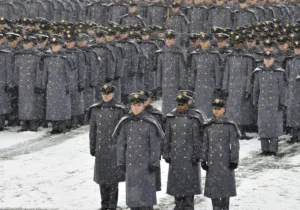
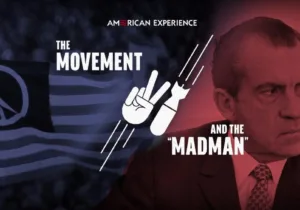
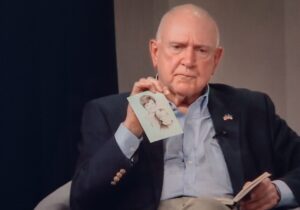
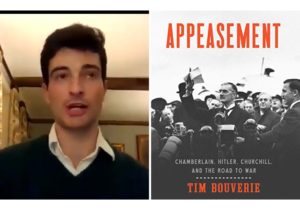
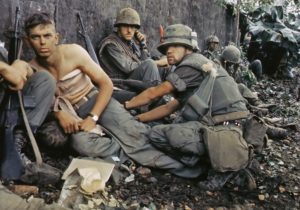

 Sponsor a student for Christianity & National Security 2024
Sponsor a student for Christianity & National Security 2024